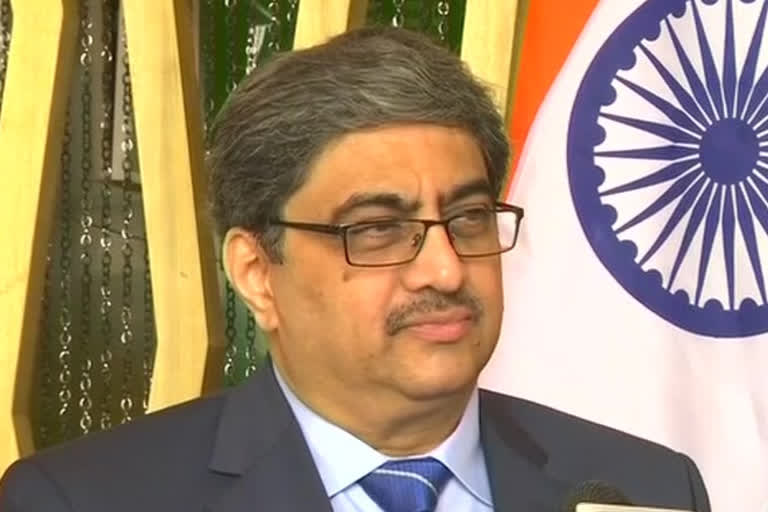New Delhi: Amid an ongoing border tussle in eastern Ladakh and media reports suggesting that India is imposing curbs on visas to Chinese nationals after banning dozens of products of that country, the Chinese media reiterated that Beijing is not an enemy of New Delhi but a former Indian diplomat believes that the northern neighbour's actions don't match its words.
In an article titled "India's reported curbs on visas reads as anti-China sentiment after border spat", the influential Chinese state-affiliated English daily Global Times, referring to a Bloomberg report suggesting that India is slapping visa curbs on Chinese businessmen, academics, industry experts, and advocacy groups, stated that, if true, it "is a political gesture that extends from the anti-China sentiment following the border clashes."
"India wrongly considers China as an enemy," the article stated.
It quoted Long Xingchun, president of the Chengdu Institute of World Affairs, as saying that "slapping new curbs on visas for Chinese people is purely a political trick of Indian officials and politicians to cater for the anti-China sentiment among domestic nationalists, thus demonstrating how patriotic they are regarding national security issues."
The report on India putting visa curbs on Chinese nationals came after New Delhi banned 59 Chinese apps, including the video-sharing social networking service TikTok, in the wake of the bloody clashes in Ladakh in June that resulted in deaths on both sides for the first time in 45 years along the Line of Actual Control.
Read:Dawood in Karachi, Pakistan finally admits ratifying new list of banned terrorists
Diplomatic and military parleys between New Delhi and Beijing have been in a deadlock since early this month with China sticking to its claims over Pangong Tso, Galwan Valley, Depsang Plains and Gogra in eastern Ladakh.
The Global Times article quoted Long as saying "that tightening visas on Chinese has been a regular move adopted by India every time there are frictions in bilateral ties."
"Both the (Covid-19) epidemic and anti-China sentiments in India are discouraging Chinese from visiting India. Exchanges between China and India will not return to the pre-epidemic status quo at least for a year. It may take at least that long for before bilateral exchanges can resume," Long said.
Meanwhile, India's Education Ministry is also reviewing the setting up of chapters of China's Confucius Institute in association with local Indian educational institutes.
Confucius Institutes are public educational partnerships between colleges and universities in China and colleges and universities in other countries; the partnerships are funded and arranged in part by Hanban (officially the Office of Chinese Language Council International), which is itself affiliated with the Chinese Ministry of Education.
Read:India-Japan ties not against any third country: Expert
The stated aim of the programme is to promote Chinese language and culture, support local Chinese teaching internationally, and facilitate cultural exchanges. The organisation has come under much criticism due to rising Chinese influences in the countries in which it operates.
The Confucius Institute programme began in 2004 and is supported by Hanban, overseen by individual universities. The institutes operate in cooperation with local affiliate colleges and universities around the world, and financing is shared between Hanban and the host institutions.
Beijing tries to project the Confucius Institute programme with those like France's Alliance Francaise and Germany's Goethe-Institut that promote the respective countries' language and culture in other nations. However, unlike Alliance Francaise and the Goethe-Institut which operate independently in other countries, the Confucius Institutes seek to operate in collaboration with local institutes in other nations with funding from the Chinese government.
